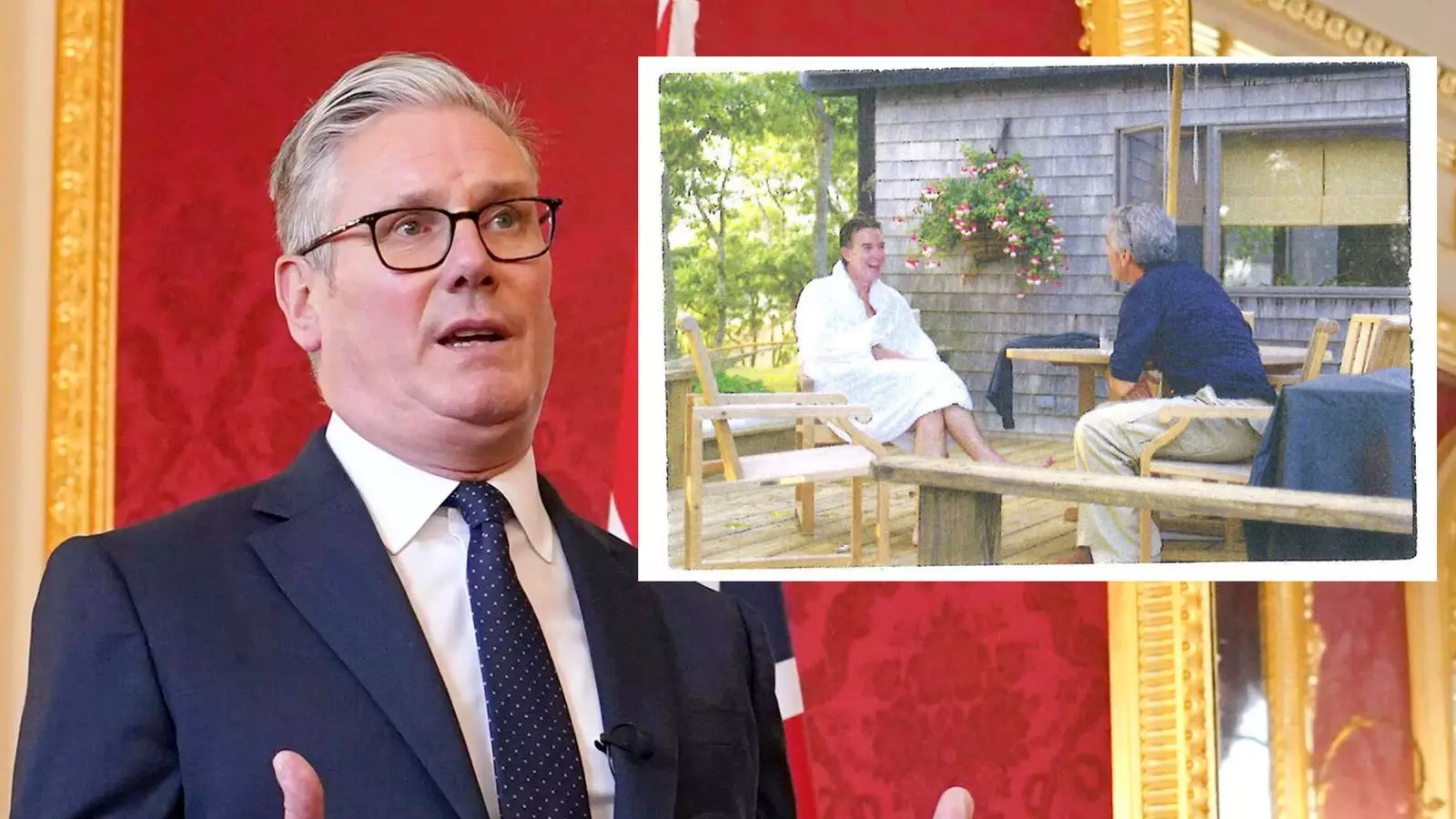In a landscape increasingly marred by ethical breaches and political misjudgments, the recent appointment and swift downfall of Peter Mandelson as Britain’s ambassador to the United States has ignited a storm of controversy that exposes larger issues within political leadership. The decision by Sir Keir Starmer to nominate Mandelson, a figure with a stained past and questionable associations, reflects a troubling willingness to overlook moral scrutiny in favor of political expediency. The subsequent revelations about Mandelson’s close ties to Jeffrey Epstein—a convicted sex trafficker linked to high-profile elites—are not just embarrassing; they threaten the very foundation of public trust in political institutions.
This scandal underscores a critical failure in vetting procedures and highlights the dangerous tendency among some leaders to prioritize loyalty or perceived influence over integrity. While politicians often argue that diplomacy requires pragmatic choices, the inclusion of a figure with such explicit troubling associations demonstrates stubborn complacency or perhaps a blatant disregard for ethical standards. This failure to adequately scrutinize appointees casts doubt on the government’s commitment to moral accountability and reveals a worrying prioritization of reputation over principle.
Questionable Judgments and the Erosion of Leadership Integrity
What is perhaps most alarming is the reluctance—or outright refusal—of the leadership to transparently address the depth of knowledge about Mandelson’s relationship with Epstein before his appointment. The government’s secretive approach toward vetting processes fuels suspicion that key figures either turned a blind eye or were willfully negligent. Prime Minister Starmer’s initial defense of Mandelson and subsequent apology for not knowing the full extent of his connections does little to assuage public concern. Such backtracking creates an impression of disorganization and a disturbing lack of moral compass that should characterize responsible governance.
Moreover, the political stakes are heightened by the timing. With President Donald Trump’s arrival for a state visit looming—and amid swirling allegations about his own connections to Epstein—the optics become strategically significant. It’s not simply about a misplaced appointment; it’s about whether a government can uphold moral standards when both domestic and international eyes scrutinize its credibility. This scandal, therefore, transcends individual misjudgment, touching the core of political legitimacy and whether contemporary leadership can truly embody ethical standards or remains shackled to corrupt compromises.
Morality, Power, and the Role of a Center-Left Compass
From a center-wing liberal perspective, the Mandelson episode exemplifies the peril of compromised values within the machinery of power. Liberals often champion the idea that leadership should serve as a moral beacon, holding itself to higher standards because public trust is foundational to effective governance. When those standards are overtly compromised or casually dismissed, the entire political system risks losing its moral authority.
This incident demands reflection on the role of transparency and the importance of moral clarity in leadership decisions. It reveals that too often, political calculations trump ethical considerations, leading to a culture where “who you know” repeatedly trumps “what you stand for.” Such complacency cannot be tolerated if society hopes to rebuild its confidence in government. Leadership in a liberal democracy must be anchored not only in policy but also in the unwavering commitment to ethical principles, especially when dealing with sensitive issues involving justice, morality, and international reputation.
Moreover, the fallout from this scandal illustrates the necessity for reform in vetting procedures and accountability mechanisms. Leaders must recognize that the credibility of their office hinges on their ability to uphold moral standards, not just political survival. Ignoring this foundational aspect risks further erosion of trust, making governance more about image than integrity—a trend that we can ill afford in an era demanding moral resilience.
Reflecting on Power, Responsibility, and Moral Consequences
This crisis serves as a stark reminder that political power comes with profound responsibilities that extend beyond mere policy or diplomacy. It is about embodying the values that underpin a fair, just society. When these values are undermined by questionable associations and opaque decision-making processes, it fuels citizen disillusionment and cynicism.
From a liberal standpoint, the path forward must involve a renewed commitment to transparency, ethical vetting, and accountability. Leaders must understand that their power derives legitimacy from their moral authority, not their political alliances or strategic calculations. The Mandelson scandal is a mirror held up to the flaws within our political system—flaws rooted in complacency and the willingness to overlook moral transgressions for political gain.
This event compels us to question whether the current political environment can sustain a moral framework capable of guiding decisions that affect national reputation and international relations. The answer hinges on whether those in power embrace the difficult task of moral renewal or continue to sideline integrity in favor of short-term political expediency. Until such a moral awakening occurs, public faith in leadership will remain fragile, susceptible to the next scandal that threatens to undermine the very essence of democratic governance.


Leave a Reply